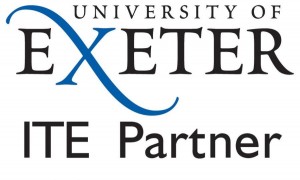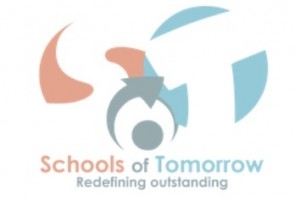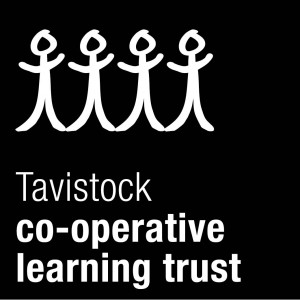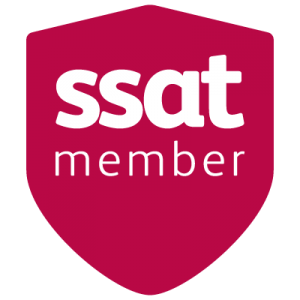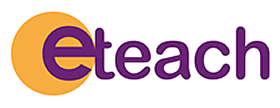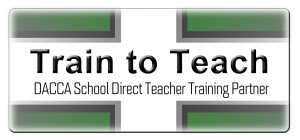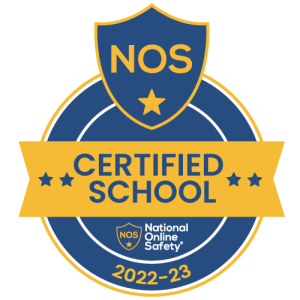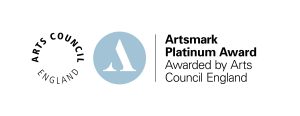It has been an exciting week. We have welcomed back a high proportion of Y12 and Y10 students over the last 5 days, and absorbed many more key worker children than we had previously seen. Our well laid plans have not failed us, colleagues have all pulled together and the systems we have in place are working well. In so many ways it is an utter relief to be doing what we planned for since we shut. The degree of collaboration and creativity matches few other organisations in these times. I know that should we be asked to take other year groups back, then we are certainly ready.
Of course everything is very different for the students. Unsurprisingly, they have been very resilient, and were very keen to follow the new rules in order to gain face to face time with teachers. As I had hoped, the students who have been in school the whole time have shown real leadership, and have been excellent role models for the others returning for the first time. This will perpetuate as more students return. We have learned a lot in the last few weeks about supporting students with remote learning, and we are now better placed than ever before to work alongside learners to diagnose their needs and next steps.
I spoke recently about the genuine positivity that can be found in these new ways of working that have been thrust upon us in the COVID world. I was therefore delighted to read the report published by Hattie and Cox on the effects of school closures on students’ learning. They undertook a large national study of experiences and also compared metastudies from countries that had faced natural disasters such as earthquakes, fires, floods and long educational strikes. They found that the effect size was only -0.12. Effect sizes of less than -0.3 are deemed to be negligible in their impact. -0.12 is unpredictably small, and it begs the question as to why we are spending enormous amounts of time looking at ‘catch up’ (to where?) conversations. These are being driven largely by non-educationalists and the media who actually should stay off the pitch. There have been huge assumptions made about the fact that students are behind: it is possible that students are now further ahead now than they might have been as a result of more individualised learning programmes. A change to schooling in the longer term is worthy of debate, and it must go a little further, I believe, than extending the school day. A rather simplistic and ill thought out approach.
The study by Hattie and Cox has positive messages about change, if we are minded to accept it. They refer to the lack of desire to return to the old normal. The old normal has not changed much in 50 years: • We talk a lot • We ask the questions (about facts) • We see students as recipients • We exam and make students DO things • We sort, group, differentiate • We standardise & slice the curriculum • We age group, we track, we segregate • We sit students in groups, for fixed periods of time • We use bells • We emphasise facts, facts, facts
However, their research over the last few weeks has revealed the following repeating messages. The benefits of remote learning from parents are: • Improved Independence, organisation, time- management and responsibility • More family time together • Support from staff and communication from the school • Being able to help/see what children are learning • Adapted to & enjoying online classes • Learning more about schooling and the curriculum • Reduced travel time • More engaged and task focused • Less distractions from other students • More sleep/time to rest
Student top tens are: • Working at own pace for long or short periods • Time for other interests and hobbies • Not having to get up so early • Being comfortable at home • Being able to spend time with family • Not having to travel • Can do more work – more focused • Fewer distractions • Engaging with friends • Responsibility & accountability for own learning
And teacher gains are: • Adopting new/innovative ways to teach • Development of stronger IT skills • Positive connections maintained with students • Developing self-efficiency/independence in students • Greater flexibility to create and deliver quality lessons • Increased communication/collaboration between staff • Assisted wellbeing/less stressful working at home with own children • Reduced travel time
We know these gains do not hold true for all students, particularly those who struggle with low self-regulation, who are highly dependent on teachers, live in homes that are not safe havens, or who have access to fewer educational resources and activities. In addition, some students have parents with low capacity or desire to engage them in the school work at home. This might mean we invest in better triage and differentiated time in school. It might mean more time in school for some, and less for others. It might mean the growth of online learning and independent learning delivery. Whatever, it is a time to reflect.
I doubt we ever get the chance to debate system wide change on this level. Change is challenging to many. When lives are going well, and sometimes even when they aren’t, many find themselves feeling very attached to the status quo of existence–life as we know it. It is a very human tendency to resist change as though it were possible to simply decide not to do it, or have it in our lives. Of course, the answer is not to go about changing things at random, without regard to whether they are working or not. There is a time and place for stability and the preservation of what has been gained over time. The problem comes when we become more attached to preserving the status quo than to honoring the universal givens of growth and change. For example, if we allow a situation we are in to remain stagnant simply because we are comfortable, it may be time for us to summon up the courage to challenge the status quo.
But change will come and the status quo will go, sooner or later, with our consent or without it. We may find at the end of the day that we feel considerably more empowered when we find the courage to ally ourselves with the force of change, rather than working against it.
Criticism of our profession by those who have little understanding of education is quite difficult to swallow sometimes. But we must never be cowed by it. My father once told me to never accept criticism from someone I would not trust to go to for advice. From the very outset of this crisis, schools have stepped forward to do the right thing for the students in their care and the communities they serve. We can be the commanders of our own destiny if we want it. We need to do what Fullen asserts – to ‘build back better’. Who is ready for that?
Dear parents and carers,
On 24 May the Prime Minister outlined the phased return of some pupils to schools, subject to the government’s 5 tests being met. From the week commencing 15th June the government is asking secondary schools to offer face-to-face teaching to supplement the remote education of year 10 and year 12 pupils. The ambition is that remote learning should remain the predominant mode of education during this term for pupils in these year groups and others.
The government’s assessment, based on the latest scientific and medical advice, is that schools need to continue to control the numbers attending school to reduce the risk of increasing transmission of coronavirus. Therefore, schools are only able to have up to a quarter of the year 10 and year 12 cohort in school at any one time. Because of this, it will not be possible to guarantee that pupils will be taught by their current teachers.
Full expectations are given in the DfE guidance:
https://www.gov.uk/government/publications/preparing-for-the-wider-opening-of-schools-from-1-june
Tavistock College will be adhering to the expectations for secondary schools. This decision is based on our guiding principle that we are all committed to pupils returning to school as quickly as is possible, whilst ensuring that all health and safety considerations have been taken into consideration and acted upon.
In addition to bringing Y10 and Y12 into school, we will continue providing full-time provision for vulnerable pupils in all year groups (including year 10 and year 12); continue providing full-time provision for children of critical workers in all year groups (including year 10 and year 12); continue to use best endeavours to support all other pupils remaining at home, making use of the available remote education support and ensuring a high quality offer.
We will have comprehensive risk assessments in place which will minimise the risk for our staff and pupils. Parents, carers and pupils should be aware that, in order for us to maintain our strict 2 metre social distancing requirements, the school will be a very different place from how it was when pupils left at the commencement of lock down. Changes that have been implemented are described in the DfE guidance on implementing protective measures in educational settings.
Steps we will be following will create an inherently safer environment, where the risk of transmission of infection is substantially reduced. These include:
- Minimising contact with individuals who are unwell by ensuring that pupils or staff who have coronavirus symptoms, or who have someone in their household who does, do not attend school
- Cleaning hands more often than usual – pupils and staff will be encouraged to regularly wash their hands, or use alcohol hand rub or sanitiser which will be available in every classroom.
- Ensuring good respiratory hygiene by promoting the ‘catch it, bin it, kill it’ approach
- Cleaning frequently touched surfaces twice a day
- Staggering break times and starting times so pupils do not mix.
- Minimising contact and mixing, as far as possible, by keeping pupils in small groups of 5 for face-to-face teaching and keeping those groups as consistent as possible whilst in school especially in break times (no socialising with friends, leaving their seat or contact with others)
- Altering the school environment (e.g. changing classroom layouts so desks are further apart or dividing groups into different classrooms)
- Preventing unauthorised pupils from entering the school grounds unless for agreed contact time or attendance as above.
- Operating a rota system for pupils to attend.
- Adjusting our behaviour policy to provide greater sanctions to pupils who do not comply with expectations.
Thank you to those of you who have completed the survey indicating that you would like to send your children back to school. This has helped considerably with our planning. If you have changed your mind regarding sending your son/daughter to school, please let us know.
Further information will be sent closer to 15th June. In the meantime, if you have any questions regarding anything I have included here, please feel free to contact us through office@tavistockcollege.org
Best wishes
Sarah Jones
Principal
Dear Parents/Carers,
The Prime Minister announced on Sunday that schools would begin to open from June 1st. On Monday, the DfE provided the following guidance;
‘From 1 June 2020, we expect that secondary schools and colleges will be able to offer some face to face contact with year 10 and year 12 pupils. This will not be a return to full timetables or pupils back in school or college full time, rather some support to supplement pupils’ remote education.’
We are receiving updates from the DfE on a daily basis, and there is, in our opinion, a chance that things may change further as the DfE consults with Trade Unions, the Local Authorities and other organisations connected with the education sector. If this is the case and timelines were to change then we would obviously keep you informed, but at the time of writing we are giving due consideration to the logistical requirements needed to be able to widen our provision from the 1st June, 2020.
As always, our priority is the health, safety and wellbeing of our students, staff and families. Therefore, we are working hard to formulate plans to ensure that the government’s guidelines can be implemented, without causing undue concern to our communities. Therefore, if you have a child in year 10 and or 12 you will be receiving a separate email containing a link to a survey that we ask you to complete as thoroughly as possible at this time.
Following the results of this survey we will then be in a position to plan effectively what any potential provision may look like for those year groups which we will communicate with you fully.
However, the provision will not be full time education. We will only be providing some face to face tuition. Strict social distancing rules will be applied to everyone attending the school site. Students will not be allowed to interact with others outside of their classroom. This could be with as little as 4 others, remaining in the same classroom for all lessons. Social times will be staggered and although food will be available, there will be no socializing in the refectory or public spaces. We will also inform you of the additional procedures we will be putting in place to minimise any potential risk to students, staff and families.
Along with the face to face contact for year 10 and year 12 students, we will continue to provide supervision for children of critical workers and those considered vulnerable, as well as providing home learning to all students. We will also continue to provide a free school meal parcel service.
You and our students, will have many questions and we thank you in advance for your patience and understanding. We hope that our communication with you over the next two weeks should answer any questions you have, but as always, please let us know if you have any urgent concerns.
Many families will have heard the Prime Minister’s address on Sunday 11th May in which he stated that:
“At the earliest by June 1 – after half term – we believe we may be in a position to begin the phased reopening of shops and to get primary pupils back into schools, in stages, beginning with reception, Year 1 and Year 6. Our ambition is that secondary pupils facing exams next year will get at least some time with their teachers before the holidays.”
Tavistock College will continue to offer places for vulnerable children and those of key workers, but we understand that many other parents will want to know more about when their children will return to school. Schools across the country will also have heard this news for the first time on Sunday and over the course of the next week or two, we will be reviewing the detailed guidance the government has said it will provide. We will then take any action required to open the school to the year groups identified in a safe way. When we are in a position to do so, we will provide information on the website and in other communications so that you will know exactly when Tavistock College will be able to once again offer a place for your children.
The College uses GCSEPod to support online learning in school and at home. They are offering a series of webinars for parents. Join a GCSEPod webinar and find out how you can use GCSEPod to support your child’s learning plus get tips and guidance on effective home learning practices. Follow the link to register.
Dear parents and carers,
As you will have heard, the Department for Education has recently announced that they will make available IT hardware for vulnerable children, alongside disadvantaged Y10 students with limited access to a digital device, during the period of school closure. We welcome this move, and I know many parents will too.
We do not yet have details about the project, but we do know that the Local Authority and the Dartmoor Multi-Academy Trust will be given a fixed number of laptops and tablets to loan to parents to support children who are designated as qualifying for this scheme. We know that there will not be a device for everyone, so some decisions will need to be made about their allocation. Also, it is intended that the laptop remains the property of the LA or Trust, and therefore there will be limitations placed on how they are used. When we have more details, such as the date these will actually be available, I will be sure to provide an update.
The school will be closed on the May bank holidays, but we will remain open throughout the half term break for children of key workers and vulnerable students. If you need to send your child to school in half term, and they qualify for a place, please can you let us know by 0800 on Monday 25th May so that staffing can be arranged.
Thank you all for your patience with us during this period of partial closure. Please remember that we are here to help you, so please feel confident that you can contact us at any time and we will endeavour to support as much as we can.
Periods of instability, such as during the coronavirus pandemic, bring an increased risk of fraud. Fraudsters will actively exploit these difficult times and will target vulnerable areas for financial gain.
We have been informed some learners and parents have received a letter from ESFA asking for personal learner bank details in relation to the 16 to 19 Bursary Fund. We never ask for personal bank account details. This is a fraudulent letter – please do not respond.
Dear Parents and Carers.
Thank you for your patience over the last few weeks. We have finally received more specific information from the exam boards about grade allocation for vocational qualifications. The information is pretty much the same as it was for GCSEs and A Levels. However, grading will be more individualised as each course is different, made up of multiple units and assessed in different ways.
Teachers will be asked to draw on a range of evidence from the past 2 or 3 years and make a judgement about the grade each learner would most likely have achieved had they been able to complete their assessments in summer 2020.
Ofqual, the exams regulator, has made it clear that teachers will not be permitted to discuss with you the grading process or the grades we submit to the exam boards. This is because our judgements will be subject to some kind of moderation process. However, we can tell you that the final grades will be ‘calculated grades’, a mix of completed work and partially completed units and your process across the course.
Please find the link below if you wish to read a more detailed account
https://www.gov.uk/
Sarah Jones
Principal.
Dear parents and carers
I understand how unsettling the past weeks have been for you, since the announcement that exams have been cancelled this summer, and that you are urgently waiting for news. The exams regulator, Ofqual has this morning published some further clarification on how this year’s examination results will be calculated. We have sent to all Y11 and Y13 parents the letter that has been written by Ofqual explaining the details.
This letter explains how grades will be calculated. Tavistock College will be asked to send exam boards two pieces of information for each subject where a grade was expected. This information will be based on what teachers know about each student’s work and achievements. This information will be:
• The grade teachers believe students were most likely to get if teaching, learning and exams had happened as planned. Teachers will consider a range of things like classwork and homework; results in assignments and any mock exams; any non-exam assessment or coursework completed; and each student’s general progress during the course.
• The order of students at the school by performance, for each grade, for each subject. This information will be used to standardise judgements, allowing fine tuning of the standard applied across all schools and colleges in England. The final grade students get could be different from the ones we send to the exam boards due to this standardisation process.
Students and parents will not be allowed to see the grade that has been submitted to the exam boards as Ofqual have instructed us that this is confidential. Please do not send requests or ask teachers to tell you the grades they will be sending to the exam boards or where they have placed your child in the order of students: they will not be allowed to share this with you.
Final results are expected in August, although this date has yet to be published. Students and parents that are dissatisfied with the grades when they are release can ask for an alternative examination date to sit an examination. This could be in the Autumn term 2020 or the summer term 2021.
There is a link below that will take you to the detailed document published today by Ofqual should you have further questions, or want to read guidance in more detail.
Thank you for your patience in this matter, and for all your support
Sarah Jones
Principal





